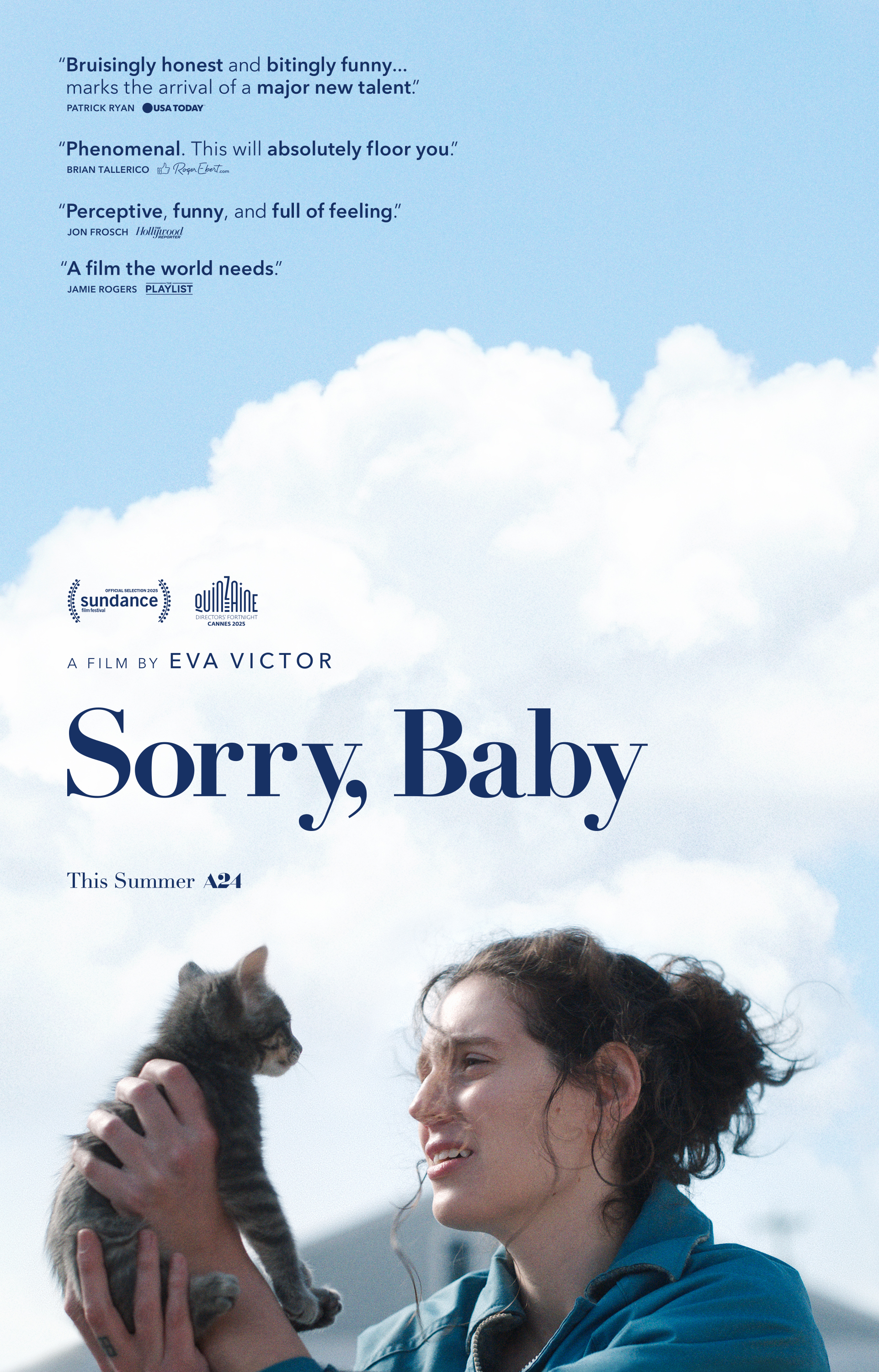 Hey friends. Barbarella here after being enthralled with Sorry, Baby, a thoughtfully told story about the enduring effects of trauma. In theaters now, Eva Victor’s film proves both sensitive and candid. Although violence lies at the center of everything, it avoids showing any potentially triggering sequences. During the pivotal event that takes place within a house, the camera remains outside holding a static shot on the domicile’s façade. The viewer could only imagine what occurs behind the door. The stillness of the scene provides a stark contrast to the savagery we envision happening within. This masterful decision makes the scene more powerful as we must sit with the knowledge and gravity of what we suspect occurs inside. This quiet restraint characterizes much of the film, distinguishing it from other cinematic explorations of trauma.
Hey friends. Barbarella here after being enthralled with Sorry, Baby, a thoughtfully told story about the enduring effects of trauma. In theaters now, Eva Victor’s film proves both sensitive and candid. Although violence lies at the center of everything, it avoids showing any potentially triggering sequences. During the pivotal event that takes place within a house, the camera remains outside holding a static shot on the domicile’s façade. The viewer could only imagine what occurs behind the door. The stillness of the scene provides a stark contrast to the savagery we envision happening within. This masterful decision makes the scene more powerful as we must sit with the knowledge and gravity of what we suspect occurs inside. This quiet restraint characterizes much of the film, distinguishing it from other cinematic explorations of trauma.
Much of the film proves artfully still as Agnes (Eva Victor) grapples with her life in the aftermath of the aforementioned event. While the topic is serious, it’s not an unrelenting, heavy film. Rather, it’s injected with humor and care throughout. The tale reveals the deep impact a moment in time could have on a life’s trajectory, and it shows the resilience of survivors as they struggle to find meaning, humor, and connection in the aftermath.
Sorry, Baby relies heavily on its brilliant cast who draw out the intricacies of each moment. Naomi Ackie and Eva Victor do most of the heavy lifting, carrying the emotional heart of the film, and I can’t get enough of either. Naomi imbues Lydie with the perfect blend of heart and solemn support, showing what true friendship could look like in difficult times. Eva Victor’s portrayal of the film’s protagonist is equally compelling. As a woman grappling with the psychological effects of trauma years afterwards, she shows an authenticity through her raw and vulnerable representation.
While I’m a huge fan of both Naomi Ackie and Eva Victor in this film, credit must also be given to the supporting cast, most notably Kelly McCormack as Natasha. She injects an odd energy, bringing humor and levity through her strange behavior that somehow feels familiar. I think I know someone like her. Maybe we all do.
Rather than rushing past the traumatic event, Sorry, Baby forces us to slow down, reminding us that the impact of trauma lingers long after the event itself, and that the presence of others can accelerate or impede the progress of healing. It should be required viewing for the compassion it inspires. It reminds us to be more human – to recognize that being there for each other doesn’t necessarily mean that we have to actively do anything. Sometimes presence alone can be everything. Through its intentional pacing, Sorry, Baby becomes more than a story about trauma. It’s a film about showing up for each other and holding space, allowing time to heal. Beautifully crafted, full of heart, humor, and compassion, Sorry, Baby should be sought out. I cannot recommend it enough.
